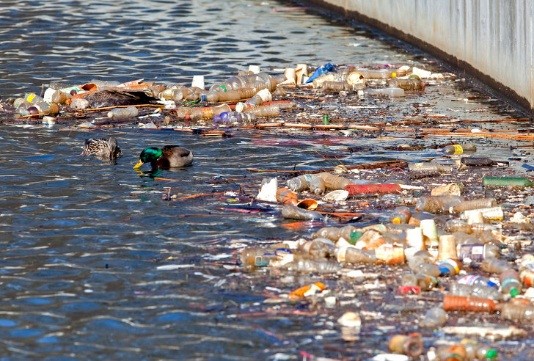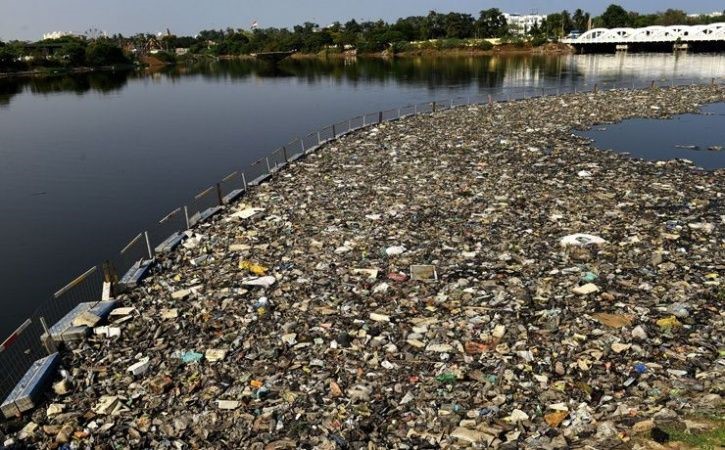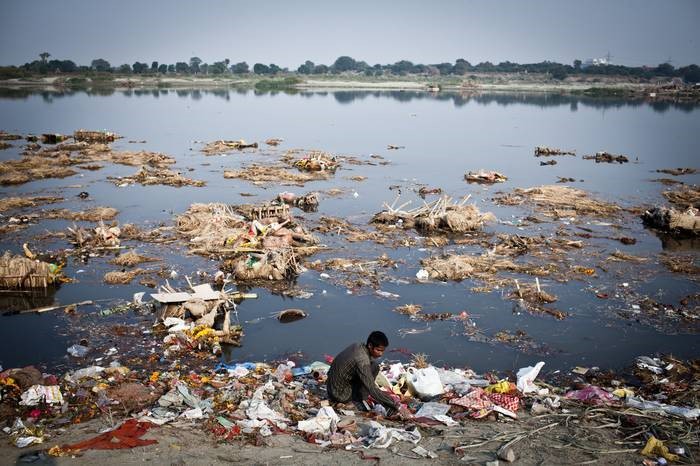Causes, Effects and Solutions
Water pollution is one of the biggest issues facing India right now. As may be evident, untreated sewage is the biggest source of such form of pollution in India. There are other sources of pollution such as runoff from the agricultural sector as well as unregulated units that belong to the small-scale industry. The situation is so serious that perhaps there is no water body in India that is not polluted to some extent or the other.
In fact, it is said that almost 80% of the waterbodies in India are highly polluted. This is especially applicable of ones that some form or the other of human habitation in their immediate vicinity. Ganga and Yamuna are the most polluted rivers in India.
Causes of water pollution in India

The single biggest reason for water pollution in India is urbanization at an uncontrolled rate. The rate of urbanization has only gone up at a fast pace in the last decade or so, but even then it has left an indelible mark on India’s aquatic resources. This has led to several environmental issues in the long term like paucity in water supply, generation and collection of wastewater to name a few.
The treatment and disposal of wastewater has also been a major issue in this regard. The areas near rivers have seen plenty of towns and cities come up and this has also contributed to the growing intensity of problems.
Uncontrolled urbanization in these areas has also led to generation of sewage water. In the urban areas water is used for both industrial and domestic purposes from waterbodies such as rivers, lakes, streams, wells, and ponds. Worst still, 80% of the water that we use for our domestic purposes is passed out in the form of wastewater. In most of the cases, this water is not treated properly and as such it leads to tremendous pollution of surface-level freshwater.
This polluted water also seeps through the surface and poisons groundwater. It is estimated that cities with populations of more than one lakh people generate around 16,662 million litres of wastewater in a day. Strangely enough, 70% of the people in these cities have access to sewerage facilities. Cities and towns located on the banks of Ganga generate around 33% of wastewater generated in the country.
Following are some other important reasons of increasing levels of water pollution in India:
- Industrial waste
- Improper practices in agricultural sector
- Reduction in water quantity in rivers in plains
- Social and religious practices like dumping dead bodies in water, bathing, throwing waste in water
- Oil leaks from ships
- Acid rain
- Global warming
- Eutrophication
- Inadequate industrial treatment of wastes
- Denitrification
Effects of water pollution in India
Water pollution can have some tremendously-adverse effect on the health of any and every life form living in the vicinity of the polluted water body or using water that has been polluted to some extent. At a certain level polluted water can be detrimental to crops and reduce the fertility of soil thus harming the overall agricultural sector and the country as well. When sea water is polluted it can also impact oceanic life in a bad way. The most fundamental effect of water pollution is however on the quality of the water, consuming which can lead to several ailments.

In fact as far as India is concerned polluted water is one of the major factors behind the general low levels of health in India, especially in the rural areas. Polluted water can lead to diseases such as cholera, tuberculosis, dysentery, jaundice, diarrhoea, etc. In fact, around 80% stomach ailments in India happen because of consuming polluted water.
Solution of water pollution in India
The best way to solve these issues is to prevent them. The first major solution in this context is conservation of soil. Soil erosion can contribute to water pollution. So, if soil can be conserved we can prevent water pollution too. We can follow measures such as planting more trees, managing erosion in a better way, and use farming methods that are better for the soil. In the same vein it is also important to follow the right methods in disposing toxic waste. For starters, we can use products that have lesser amounts of volatile organic compounds in them. Even in cases where toxic material like paints, cleaning supplies, and stain removers are used, they need to be disposed off in the right way. It is also important to look into oil leaks in one’s cars and machines.

It is said that leaked oil – even from cars and machines – is one of the principal contributors to water pollution. Hence, it is important to look at cars and machines, which run on oil, on a regular basis, to check them for any possible oil leak. It is important after work – especially in factories and production units where oil is used – to clean up the wasted oil and either dispose it properly or keep it for later use. Following are some other ways in which this problem can be addressed adequately:
- Cleaning up waterways and beaches
- Avoiding the usage of non-biodegradable material like plastic
- Being more involved in various measures pertaining to preventing water pollution.
Vardhman Envirotech
India’s Passionate rainwater company
This article is published on: –
https://www.mapsofindia.com/my-india/education/water-pollution-in-india-causes-effects-solutions
We would like to spread this for the benefit of fellow Indians.
